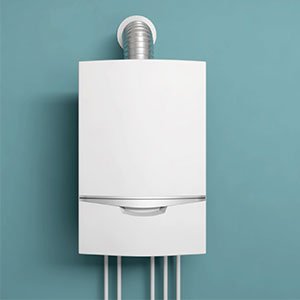ECO 4 vs ECO 3 – Wolseley explains what installers need to know

2022 sees the final phase of the government’s ECO scheme for funding heating efficiency called ECO 4. In this article, Wolseley digs into exactly what is going to change from ECO 3 to ECO 4 and how this will affect installers.
What is ECO Funding?
ECO stands for the Energy Company Obligation. It is an ongoing scheme designed by the government that mandates large private energy companies to help the UK reach its emissions reduction targets. This means that energy companies are required to help fund the installation of energy efficient solutions in consumer’s homes, focusing on insulation and heating systems.
What is ECO 3?
ECO 3 was in place until 2022 and took effect from 2018. ECO 3 allows those eligible to get extra funding to install more efficient heating systems and insulation in their homes.
What will change with ECO 4?
ECO 4 replaces ECO 3. It continues to focus on lower income households, providing support for improving heating efficiency while also helping to alleviate fuel poverty.
One of the major changes is that the energy suppliers’ allowance that they can put towards Local Authority Flexible Energy (LA Flex) schemes is doubled. So, expect to see a lot more funding coming through this route.
Another major change is that some of the eligible benefits for ECO 3 are being removed for ECO 4. This means that some consumers who were previously eligible for ECO 3 funding may no longer have access to these funds. Below is a list of the benefits that are being removed from ECO 4.
Benefits that received funding under ECO 3 that are no longer eligible for funding under ECO 4:
- Disability Living Allowance (DLA)
- Personal Independence Payment (PIP)
- Attendance Allowance
- Carer’s Allowance
- Severe Disablement Allowance
- Industrial Injuries Disablement Benefit
- War Pensions Mobility Supplement
- Constant Attendance Allowance
- Armed Forces Independence Payment
Benefits that will receive funding under ECO 4:
- Income Based Jobseekers Allowance (JSA)
- Income Related Employment & Support Allowance (ESA)
- Income Support (IS)
- Pension Credit Guarantee Credit
- Working Tax Credit (WTC)
- Child Tax Credits (CTC)
- Child Benefit*
- Universal Credit (UC)
- Housing Benefit
- Pension Credit Savings Credit
*If Child Benefit is the only benefit you receive, you will also need to meet an income test (there are no income requirements if you have claimed any of the other benefits listed).
The last two on this list (Housing Benefit and Pension Credit Savings Credit) were not previously eligible for ECO 3 and have been added to ECO 4.
These are big changes that will affect not only who can access the scheme, but how they can access it.
How will ECO 4 affect installers?
The rules around who can get a new boiler under ECO 4 are also much stricter than they were under ECO 3, meaning that the vast majority of applicants will no longer be eligible. But perhaps the biggest change affecting installers as part of ECO 4 is the almost complete phasing out of fossil fuel boilers.
This is part of the government’s broader net zero strategy, which is seeing them moving away from fossil fuel-based heating wherever possible. ECO 4 will no longer cover LPG boilers and oil boilers, and there will only be limited funding available for new gas boilers. This means that installers will no longer be able to install oil and LPG boilers in off-grid homes with ECO funding. Instead, these properties are encouraged to look at heat pumps, and where these are not viable, biomass boilers.
Clearly, this move away from traditional fossil fuel boilers is a significant shift for installers. This is part of a wider trend of course, with the modern installer needing to be comfortable with new clean technology, as traditional fossil fuel boilers are slowly being phased out across the UK.
Another crucial step in ECO 4 is that all newly installed wet central heating systems will be required to be low temperature systems. Again, heating engineers will need to be comfortable with these technologies to work on ECO funded installations.
There is also a push towards more district heating systems (DHS) – so installers with expertise in this space could certainly look to win new business.
Finally, much like in previous iterations, ECO 4 mandates that anyone getting funding through the project must be given advice on the benefits of smart meters and how to request an installation.
In general, installers need to invest the time to train in new heating technologies and ensure they are ready for this transition to clean heating technologies. Of course, this goes beyond just ECO funding, as it is reflective of the wider trend within the industry. For those that get ahead of the curve, there will be considerable opportunities to win business from ECO 4 funded installations, as housing stock in the UK looks to transition away from reliance on gas heating.
